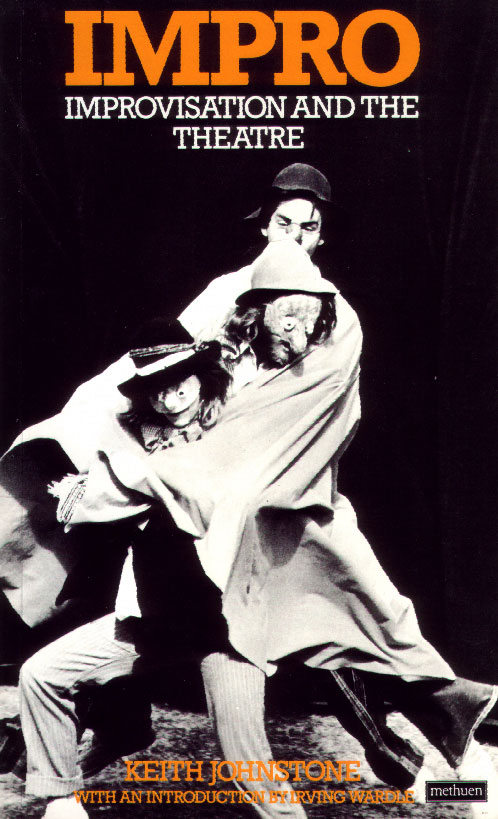Mindfulness
/I teach movement and stillness. I want my students to gain access to increasing amounts of perceptual and spatial awareness so that they also have access to the profound tools of improvisation and whole body expression.
I've been following the development of mindfulness curricula over the past ten years with rather tepid interest. Growing up Zen, I've met a lot of gentle mindless Buddhists, in a word: boring. I've also met a lot of people who practice non-reactiveness which creates an illusion of calm. That seems fine at first glance, but a facade of calm based on not-reacting is not very robust. When the calm breaks under spontaneous pressures it tends to either become wimpy and impotent, or extremely aggressive. The bumper-sticker version: Beware of nice people.
But what if the limited goal of mindfulness training is the creation of available awareness as a conditioned habit? Now that is a much more interesting goal.
To get at the questions of, what is available awareness? and how does one condition it? We first have to deal with the twin stress responses: Distraction and disassociation.
Distraction and disassociation are opposite sides of the same coin. Distraction in an educational environment is often called difficulty focusing (meiyou jingshen, in Mandarin). But more generally it is the mind's tendency to be sucked into one input after another. Think of it as lots of little focuses. Distraction is clearly not available awareness.
Disassociation on the other hand is highly valued in most educational environments. Disassociation is a powerful focusing tool. Disassociation is the ability to put one's mind to a task and disregard all other needs, interests, or inputs. People with strong tendencies for disassociation can learn languages without visiting a country where that language is spoken, can learn to play a musical instrument with minimal guidance, they can read and assimilate vast swaths of knowledge. We as a society may value it, but it isn't available awareness. It might better be called mind training (samatha in Sanskrit) or skillful trance.
I'm not confident that I have a convincing definition of available awareness. It is sort of like enlightenment, I know it when I see it. More importantly, I notice when it isn't there in other people. It is the fashion these days to talk about how cool it is to think outside the box, but frankly I'm delighted when I meet someone who can think inside the box. That ability is rare enough.
The most powerful teaching tool I know of is called taking responsibility. Giving someone responsibility and supporting them in making decisions and taking actions might be a good strategy for conditioning the habit of creating available awareness.
I would think that anyone trying to teach mindfulness would want to create a list of all the intermediate steps one might utilize in attempting to create a nourishing environment for getting others to take responsibility. I would like to see that list.
This may or may not be funny, but people with available awareness tend to love criticism. "What the #@$% is wrong with you SCOTT?" "Wow, yeah? cool. WHAT THE #@$% IS WRONG WITH ME???"
Perhaps available awareness is knowing that one has blind-spots and wanting other people to point them out. Perhaps available awareness is simply a recognition of the human tendency to firmly assign the causes of failures (and successes) or obstacles (and opportunities) to discrete actions. There is obvious utilitarian value in making these firm assignments of causation, but the unconscious habit creates blind-spots.
There may be some relationship between available awareness and what is called in the commercial world multi-area competence, being good a many things.
There are almost certainly a wide array of sensory-motor and perception-action stimuli that help establish available awareness. And perhaps even more key, a person needs enough time and an appropriate environment to process those experiences. People need rest, safety, alone time, nutrition, to be listened to, group bonding, and most profoundly: opportunities to fail and enjoy it. Without all of those things humans tend to be highly reactive, or over-reactive. Stressed out people may be distracted, or they may be focussed, but they are unlikely to have available awareness.
People often find comfort and safety in established hierarchies, we are social animals after all. Architecture can help with this. Knowing one's place, having a role and fulfilling that role, may be an important first step to establishing available awareness.
Available awareness is the potential to respond to multiple inputs with full access to one's emotions, intellect, and physicality. It sometimes manifests as comfort with ambiguity, and a dynamic relationships to chaotic forces or complex influences.
I'm all for including meditation tools in schools, businesses, government, hospitals, any institutions which might benefit. I do worry a bit that we might be applying a band-aid to a gaping wound, but a serious meditation practice can produce real insight. Yet I think it is important to keep in mind that the ultimate fruition is not to make people less reactive, nor it to make them better at focusing. It is to give them the option of creating available awareness. Without it we will have a hard time ever having political discussions of any consequence, developing any real freedom in movement traditions, or experiencing intimacy.
Trying to teach movement, experience intimacy, or have a political discussion of any consequence, without having first fostered or discovered some available awareness is like trying to start a fire by hoping lightning will strike at one's feet.
"How long has it been since normal seemed normal?"
-Laozi




